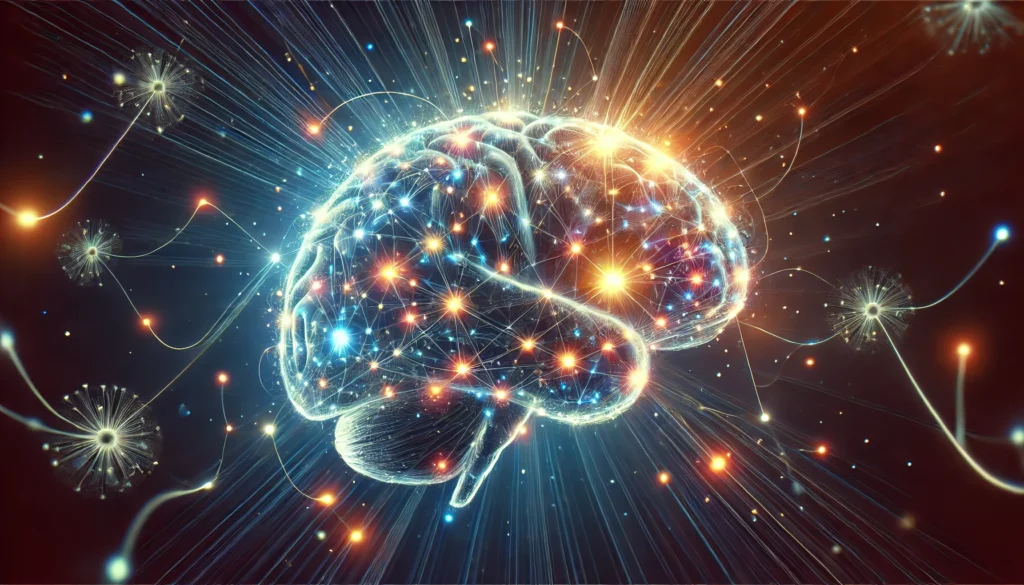Sleep is a universal human experience. It’s a vital part of our daily routine, yet its importance is often underestimated.
The question, “Is 4 hours of sleep enough?” is frequently asked. Many people wonder if they can thrive on such a short duration of sleep.
This article delves into the science of sleep. It aims to provide a comprehensive understanding of sleep duration and its effects on our health and well-being.
We’ll explore the myth of the “short sleeper”. We’ll also discuss the potential consequences of chronic sleep deprivation, from cognitive impairment to physical health risks.
Is some sleep better than none? We’ll compare the effects of different short sleep durations. We’ll also provide practical strategies for improving sleep quality.
For those interested in biohacking and nootropics, we’ll discuss their potential role in sleep optimization. We’ll also look at the future of sleep science and its implications for health and wellness.
Whether you’re a health coach, a science journalist, or a biohacker, this article will provide you with a wealth of information on the critical topic of sleep. Let’s dive in and uncover the truth behind the question: “Is 4 hours of sleep enough?”
You May Also Like: Sleep Hygiene: Key Practices for Health
Understanding Sleep and Its Phases
Sleep is not just a monolithic state. It’s a complex process with distinct phases. Each phase plays a critical role in our health and well-being.
The sleep cycle can be broken down into two main types: Non-REM and REM sleep. Non-REM sleep itself has three stages, each contributing uniquely to our physical and mental recovery.
- Stage 1: Light sleep where one drifts in and out of slumber.
- Stage 2: More stable sleep, where heart rate and breathing slow.
- Stage 3: Also known as deep sleep, crucial for physical recovery and immune function.
REM sleep follows these stages. It’s marked by rapid eye movements, increased brain activity, and vivid dreams. This phase is vital for memory consolidation and emotional processing.
A full sleep cycle lasts about 90 minutes. Ideally, one completes several cycles a night. However, only sleeping four hours a night severely restricts these cycles.
Short sleep durations diminish both REM and deep sleep. This reduction can impair cognitive functions and emotional regulation. Continuous lack of these phases can lead to significant health issues.
Understanding these phases emphasizes the need for adequate sleep. Comprehensive sleep contributes to overall health. Proper sleep cycles allow for recovery, processing, and rejuvenation. For these reasons, four hours of sleep every night is insufficient for most people.
The Myth of the “Short Sleeper”
The myth of the “short sleeper” persists in popular culture. This term refers to individuals who claim to function well with minimal sleep. They boast of thriving on just four hours of sleep a night. However, scientific evidence largely refutes this notion.
True short sleepers are exceedingly rare. They are outliers in the sleep science world. Most people claiming to be short sleepers are often compensating for sleep deficits. They may fail to notice the long-term impacts on their health and performance.
Genetic studies have identified mutations in certain genes that might support shorter sleep needs. However, these cases are extremely rare, occurring in less than 1% of the population. Most of us do not possess this genetic advantage. Trying to adopt this lifestyle can lead to negative health outcomes.
Furthermore, over time, the effects of chronic sleep deprivation accumulate. Cognitive performance, mood stability, and physical health gradually decline. Short sleep durations may initially seem sufficient, but they can ultimately impair one’s abilities.
In conclusion, while the allure of being a short sleeper is tempting, the science is clear. The majority of people require more sleep to maintain optimal health. The National Sleep Foundation still stands by its recommendation of 7-9 hours for most adults, reinforcing the rarity of true short sleepers.

The Consequences of Chronic Sleep Deprivation
Chronic sleep deprivation can have devastating effects on the body and mind. Over time, insufficient sleep leads to a cascade of health issues. These range from immediate cognitive impairments to long-term physical health risks.
One of the most immediate consequences is diminished alertness and concentration. Sleep-deprived individuals often struggle with attention and decision-making. Their ability to focus on tasks becomes notably impaired.
Long-term sleep deprivation affects numerous bodily systems. The risk of developing cardiovascular disease, diabetes, and obesity increases. These are serious conditions that require lifelong management.
The immune system also suffers. Chronic lack of sleep weakens immune response, making individuals more susceptible to infections. This effect can exacerbate existing health issues and slow recovery.
The mental health ramifications are profound as well. Depression and anxiety can develop or worsen with chronic sleep loss. Emotional instability and heightened stress responses become more frequent.
To summarize, the consequences of chronic sleep deprivation are extensive, touching all aspects of health. Here is a brief list of key outcomes:
- Impaired cognitive function and memory
- Increased risk of chronic diseases
- Weakened immune system
- Poor emotional regulation
- Heightened risk of mental health disorders
Cognitive Impairment and Memory
Lack of sleep significantly impacts cognitive functions. Memory consolidation is one of the most affected areas. Sleep is crucial for processing and storing new information.
When we sleep, our brains organize memories and reinforce learning. Inadequate sleep disrupts these essential processes. It leads to forgetfulness and difficulty in forming new memories.
Furthermore, attention and cognitive flexibility decline with sleep deprivation. Problem-solving skills and creativity can suffer, impacting both professional and personal tasks.
Physical Health Risks
Chronic sleep deprivation poses serious risks to physical health. It is closely linked to several major diseases. These include cardiovascular problems and metabolic disorders.
Sleep influences hormone levels and body weight regulation. Insufficient sleep disrupts these processes, increasing obesity risk. It can also affect blood sugar control, raising diabetes risk.
Additionally, sleep deprivation elevates blood pressure. Over time, this can contribute to the development of heart disease. These risks highlight the need for sufficient sleep to maintain overall health.
Emotional and Psychological Effects
Emotionally, sleep deprivation is incredibly disruptive. People who are sleep-deprived often experience mood swings. They might feel more irritable and prone to emotional outbursts.
Moreover, prolonged lack of sleep is linked to an increased risk of anxiety and depression. Insufficient sleep can heighten feelings of stress and exacerbate mood disorders.
Poor emotional regulation due to sleep loss can affect relationships and decision-making. It can lead to impulsivity and poor judgment, impacting daily life and well-being.
Is Some Sleep Better Than None?
In the modern hustle, sacrificing sleep is common. People often wonder if a few hours of rest can still be beneficial. The question arises: is some sleep better than none?
Even minimal sleep offers some restorative benefits. Incomplete sleep cycles still allow for partial recovery. Brief sleep can provide a modicum of rejuvenation.
Research indicates that any amount of sleep is preferable to none. Short sleep episodes can improve alertness and reduce stress. They help to maintain mental performance, albeit temporarily.
However, relying on short sleep is not a long-term solution. It’s crucial to prioritize adequate sleep consistently. Balancing sleep schedules is essential for overall health and well-being.
Here’s a brief rundown of the benefits and limitations of short sleep:
- Benefits: Improves mood, aids temporary alertness, partial cognitive recovery
- Limitations: Doesn’t replace full sleep, potential for accumulating sleep debt, long-term health risks
Comparing Short Sleep Durations: 1, 2, 3, and 4 Hours
Exploring short sleep durations sheds light on their effectiveness. Sleeping for one hour provides minimal benefits. It allows for a brief light sleep phase but lacks restorative qualities.
Two hours of sleep might enter some deep sleep and REM. These stages are crucial for body restoration and memory. Yet, two hours are insufficient for full cycle completion.
Three-hour naps may cover more of the sleep cycle. However, this amount still misses key restorative stages. It offers better recovery compared to two-hour sleep periods.
Four hours come closest to one full cycle. Although it includes some deep and REM sleep, it’s still inadequate. Chronic reliance on such sleep leads to deficits in cognitive and physical health.
Short sleep does offer temporary respite. Yet, balancing adequate sleep duration remains essential. Prolonged restriction impedes health and performance, underscoring the need for sufficient rest.

Strategies for Improving Sleep Quality
Boosting sleep quality involves practical strategies and lifestyle adjustments. Consistent effort to enhance sleep brings significant health benefits. Good sleep habits are the foundation of effective rest.
Creating a bedtime routine can signal the body it’s time to sleep. Regular sleep and wake times help regulate the internal clock. A predictable schedule stabilizes the circadian rhythm.
Improving sleep quality also involves reducing disruptions. Limiting exposure to blue light from screens in the evening is crucial. Managing caffeine and alcohol intake supports deeper, uninterrupted sleep.
Here are some strategies to improve sleep quality:
- Establish a consistent sleep schedule
- Create a restful bedroom environment
- Reduce screen time before bed
- Limit caffeine and alcohol consumption
- Engage in relaxing pre-sleep activities
Sleep Hygiene and Environment
Creating the right environment is key to better sleep hygiene. A bedroom that’s cool, quiet, and dark promotes restful sleep. Good bedding can also make a big difference.
Keeping electronics out of the bedroom helps avoid distractions. This creates a sanctuary dedicated solely to rest. A clutter-free space encourages relaxation before bedtime.
Diet, Exercise, and Lifestyle
What you eat and drink affects how you sleep. Light dinners, avoiding heavy foods close to bedtime, can improve rest. Nutrients like magnesium may also support better sleep.
Regular physical activity greatly benefits sleep patterns. Exercise helps with deeper and more regular sleep cycles. Balancing lifestyle choices is essential for lasting sleep wellness.
The Role of Genetics and Individual Needs in Sleep
Understanding sleep is not a one-size-fits-all scenario. Genetics significantly influences how much sleep individuals need. Some people naturally require less sleep, while others need more.
Genetic factors can dictate sleep duration and quality. These genetic variations may affect the body’s internal clock. This also explains why some people are night owls or early birds.
Each person has unique sleep needs shaped by various influences. Environmental factors and lifestyle also interact with genetics. Recognizing these differences is key to optimizing personal sleep patterns.
Biohacking and Nootropics: Can They Help?
Biohacking and nootropics are gaining attention for their potential to enhance sleep. Biohacking involves using science and technology to optimize health and performance. Nootropics, often referred to as “smart drugs,” aim to improve cognitive function.
Certain nootropics may support better sleep by reducing stress. For instance, supplements like melatonin help regulate sleep cycles. Others, such as magnesium and L-theanine, are known for their calming effects.
However, the effectiveness of these interventions varies. They may benefit some users more than others depending on individual physiology. Before trying biohacks or nootropics, it’s important to conduct thorough research or consult with experts.
The Future of Sleep Science and Wellness
The future of sleep science is promising, with advancements poised to revolutionize health and wellness. Researchers are exploring diverse fields to understand sleep better. This multidisciplinary approach is crucial for uncovering intricate sleep mechanisms.
Technology is playing a significant role. Innovations are emerging that make tracking and analyzing sleep patterns more accessible. These technologies aim to provide users with insights into sleep duration and quality.
Collaboration in global research initiatives is enhancing our grasp of sleep’s impact on health. These efforts may lead to new public health policies promoting better sleep hygiene. As our understanding deepens, it could transform healthcare by integrating sleep as a core component.
Ultimately, these breakthroughs could empower individuals. By using the knowledge gained, people might optimize their sleep for improved well-being. The potential to tailor recommendations based on personal needs could soon become a reality.
Emerging Research and Technologies
Recent research is delving into how genetics influence sleep patterns. Scientists are investigating the genetic markers that determine individual sleep needs. Understanding these factors can guide personalized sleep strategies.
Meanwhile, innovative technologies are enhancing sleep quality. Devices capable of providing real-time feedback on sleep metrics are emerging. Such tools could help individuals adjust their habits for better rest and recovery.
Personalized Sleep Recommendations
Personalized sleep recommendations are on the horizon. They promise to tailor advice based on individual health data. This customization considers factors like age, lifestyle, and genetic predispositions.
These recommendations could lead to optimized sleep plans. Individuals might achieve better health outcomes by aligning sleep strategies with personal needs. This approach represents a significant shift towards individualized healthcare solutions.

Conclusion: Prioritizing Sleep for Health and Performance
The science is clear: sleep is essential for optimal health and cognitive function. While many strive to maximize productivity, sacrificing sleep can do more harm than good. Prioritizing sleep aligns with supporting long-term physical and mental well-being.
As research progresses, understanding and valuing sleep’s role becomes even more crucial. By integrating sleep-focused practices into daily routines, individuals can enhance their overall quality of life. Making sleep a priority is not just a step toward better health—it’s an investment in your future potential.
Further Reading:
Medical News Today: Medical myths: How much sleep do we need?
Sleep Number: Can 4 Hours of Sleep a Night Be Healthy?
Mayo Clinic: How many hours of sleep are enough for good health?
Important Note: The information contained in this article is for general informational purposes only, and should not be construed as health or medical advice, nor is it intended to diagnose, prevent, treat, or cure any disease or health condition. Before embarking on any diet, fitness regimen, or program of nutritional supplementation, it is advisable to consult your healthcare professional in order to determine its safety and probable efficacy in terms of your individual state of health.
Regarding Nutritional Supplements Or Other Non-Prescription Health Products: If any nutritional supplements or other non-prescription health products are mentioned in the foregoing article, any claims or statements made about them have not been evaluated by the U.S. Food and Drug Administration, and such nutritional supplements or other health products are not intended to diagnose, treat, cure, or prevent any disease.


